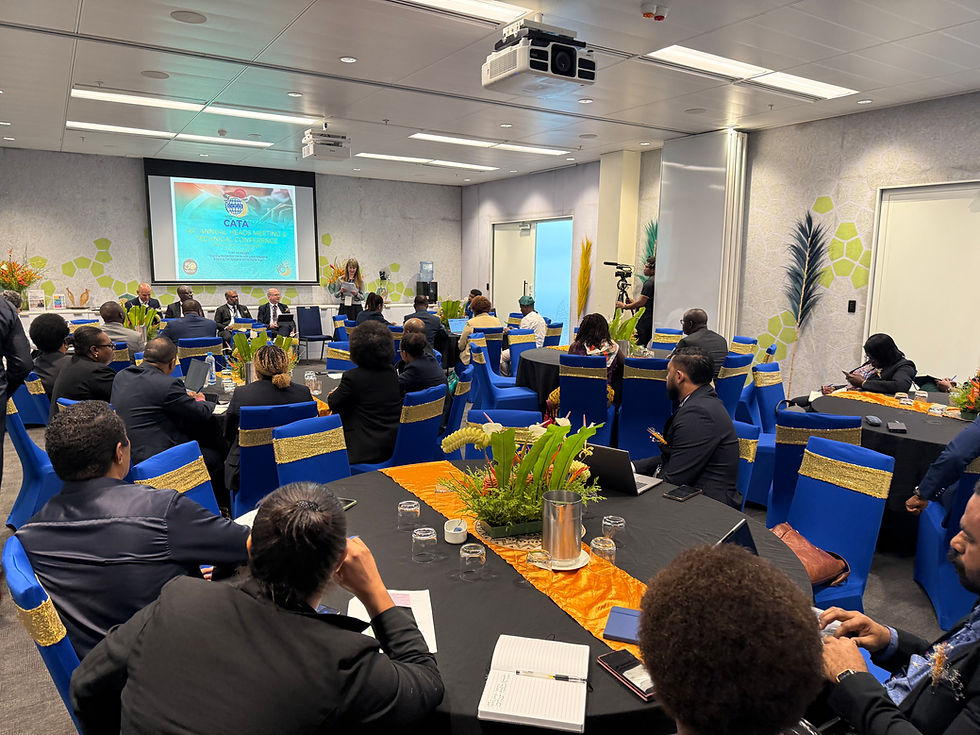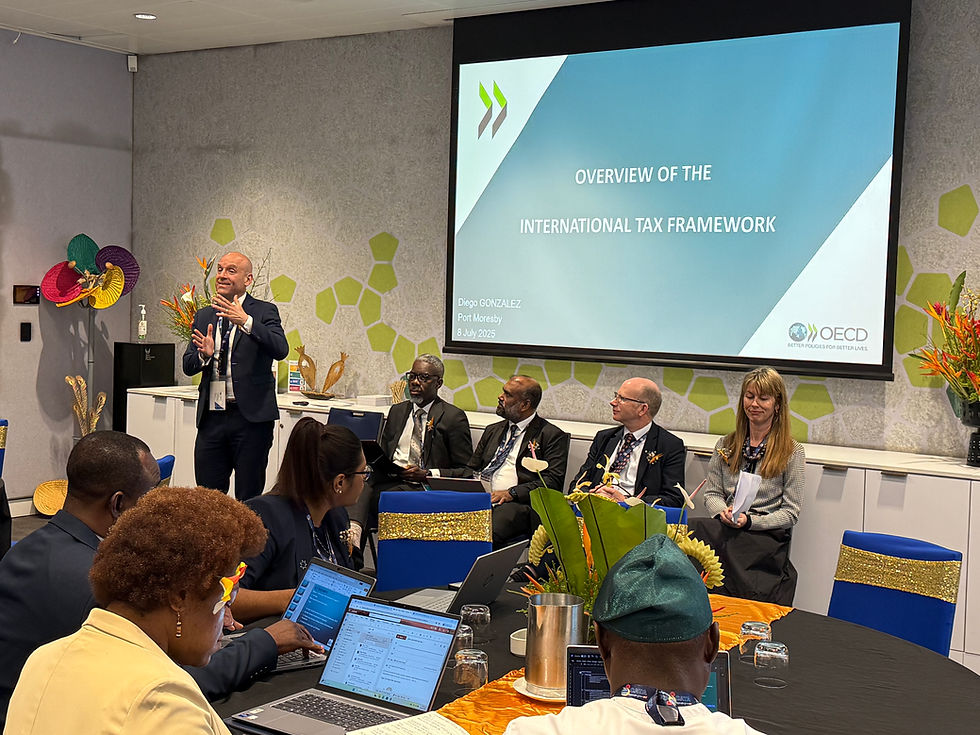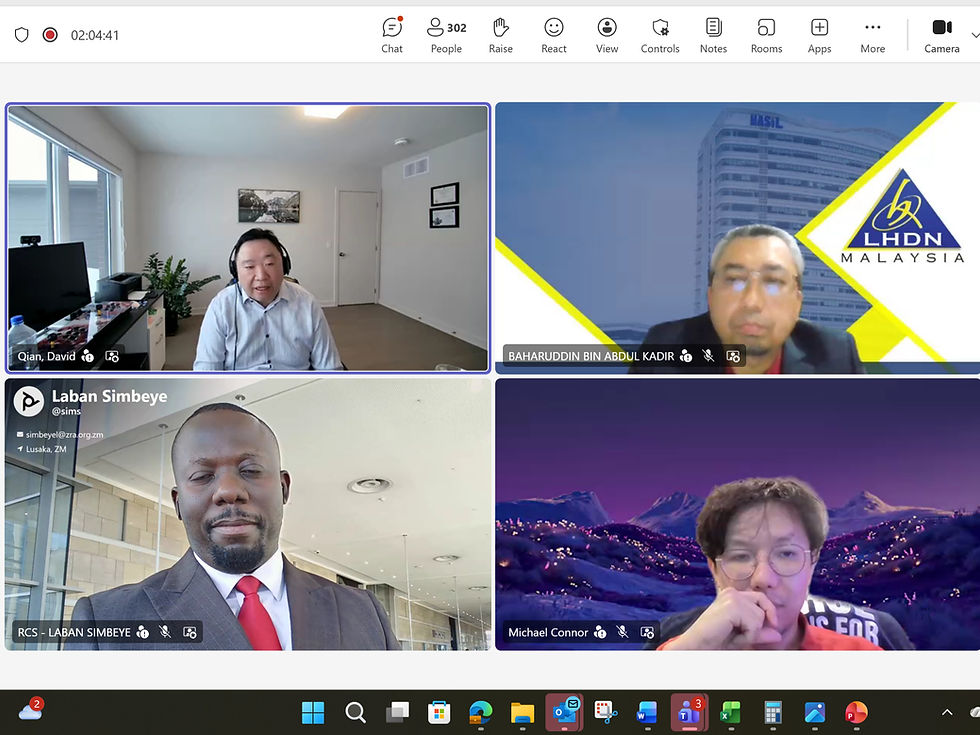Day 1 Working Groups Highlights: 45th CATA Technical Conference, Port Moresby, 8 July 2025
- Jul 9, 2025
- 2 min read
The first day of the Working Group sessions at the 45th CATA Technical Conference featured dynamic discussions on digital transformation, artificial intelligence, predictive analytics, and the local adaptation of global tax standards. Delegates engaged in practical, forward-looking conversations aimed at equipping tax administrations with the tools and strategies needed to thrive in the digital age.

Working Group 1 – Session 1: Leveraging AI for Tax Compliance
Moderator: Ms Twivwe Siwale, International Growth Centre

This session explored how artificial intelligence (AI) can support the evolution from Tax Administration 2.0 to 3.0, particularly in developing countries.
Key highlights included:
Case studies from the International Growth Centre and Adzguru PNG demonstrated real-world applications of AI in improving compliance and operational efficiency.
Participants shared their impressions of AI’s most striking uses.
Breakout discussions focused on overcoming barriers to AI adoption, including data quality, workforce upskilling, and stakeholder buy-in.
The session concluded with a call for public-private partnerships to scale AI solutions and a roadmap for implementation tailored to local contexts.
Working Group 1 – Session 2: Predictive Analytics in Tax Collection
Moderator: Mr Leo Ferre, Mauritius Revenue Authority

This session delved into how predictive analytics can enhance compliance and resource allocation. Key insights included:
Malaysia’s experience in using data analytics to improve tax administration outcomes.
India’s approach to predictive modelling for compliance forecasting and fraud detection.
Group discussions addressed:
Success stories and measurable benefits of predictive analytics.
Capacity-building needs for tax officials in data science and insights.
Ethical considerations in using predictive tools for enforcement.
The adaptability of predictive models to informal economies.
The session emphasised the importance of localised strategies and cross-country learning to ensure responsible and effective use of analytics. CATA’s extensive programme of peer-to-peer learning will continue to support this beyond the conference.
Working Group 2 – Session 1: Integrating Global Tax Standards into National Systems
Moderator: Ms Juliana Weingaertner, World Bank

This session focused on the practicalities of aligning international tax frameworks with domestic laws and realities. Key contributions included:

OECD’s overview of frameworks such as BEPS, AEOI, and transparency standards.
Nigeria’s strategic approach to local adaptation, including legislative alignment and stakeholder engagement.
Maldives’ case study on overcoming challenges as a small island developing state.
EY’s business perspective, highlighting the importance of predictability and clarity in implementation.

Group discussions explored:
Adaptation needs and capacity gaps.
Regional collaboration as a catalyst for integration.
Implementation challenges in resource-constrained environments.
Working Group 2 – Session 2: Addressing Local Tax Challenges through a Holistic Framework
Moderator: Professor Dr Victor van Kommer, IBFD

This session examined how countries can tackle local tax challenges by integrating international standards with domestic realities.

Key themes included:
Legal and regulatory barriers, and strategies to overcome them, presented by the IMF.
Institutional and capacity constraints, with insights from Zambia’s Revenue Authority.
Political and economic dynamics, explored by IBFD, and their influence on tax policy implementation.
The interactive discussion addressed:
The risks of over-reliance on global standards without local adaptation.
The role of unilateral measures and stakeholder engagement.
Tailoring GST/VAT systems to informal economies.
The session concluded with practical recommendations for aligning global norms with local needs and fostering peer learning and regional collaboration. The recommendations will feed into CATA’s 2025/2026 work programme and beyond.



